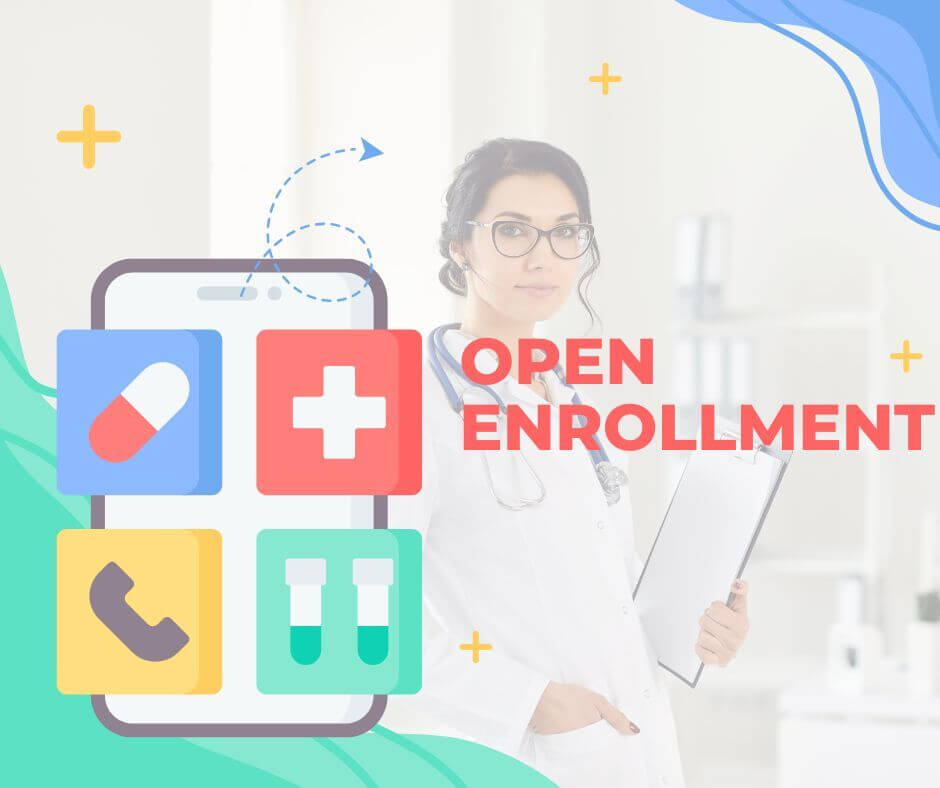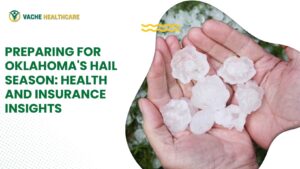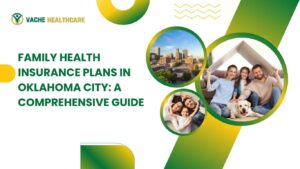Introduction:
Open enrollment is a decisive time for individuals and families to evaluate, select, or adjust their health insurance plans for the coming year. Through this guide, we strive to educate you and help you understand all the steps you need to take in order to secure the right coverage for you and your family for 2025.
What is Open Enrollment?
The first step before you begin the process is to understand what Open Enrollment is. It is the designated period that comes each year when you can enroll in your desired health insurance plan, or make changes to your existing plan without needing a qualifying event. This window is your chance to adjust your existing insurance coverage to align with changes in your healthcare needs or financial circumstances.
Exploring Health Insurance Options: Marketplace vs. Private Plans
While open enrollment is crucial for adjusting your plan, it’s also an ideal time to compare Marketplace options against private insurance offerings. Many people don’t realize that private health insurance plans can offer better coverage, access to a larger network of healthcare providers, and potentially significant cost savings depending on the policy chosen. It’s important to assess all available options, as Marketplace plans might not always be the best fit for everyone’s unique situation. Understanding the full spectrum of available insurance products can ensure you make the most informed decision for your health care needs.
What is a Qualifying Event?
Most people might not fully recognize what a qualifying event is. A qualifying event is a change in your situation, such as getting married, having a baby, or losing your existing health coverage. Events that can make you eligible for a Special Enrollment Period, allowing you to enroll in health insurance outside the yearly Open Enrollment Period.
There are four types of qualifying life events. Here’s a breakdown:
- Loss of Health Coverage:
- You might lose coverage if you’re no longer eligible for Medicare, Medicaid, or CHIP.
- Other reasons include losing your job-based, individual, or student health plans.
- Aging out of a parent’s plan when you turn 26 also qualifies.
- Changes in Household:
- Major events like getting married or divorced, having a baby, adopting a child, or experiencing the death of a family member can all qualify.
- Major events like getting married or divorced, having a baby, adopting a child, or experiencing the death of a family member can all qualify.
- Changes in Residence:
- Moving to a new ZIP code or county triggers eligibility to reassess your health plan.
- This category also covers students who are moving to or from their educational institutions and seasonal workers adjusting to new living situations.
- Additionally, moving to or from transitional housing such as a shelter is included.
- Other Qualifying Events:
- Significant changes in income that affect your eligibility for subsidized coverage can qualify.
- Gaining membership in a federally recognized tribe, becoming an Alaska Native Claims Settlement Act (ANCSA) Corporation shareholder, becoming a U.S. citizen, or leaving incarceration are also qualifying events.
- Changes in status with AmeriCorps, whether starting or ending service, also count.
Each of these events opens a window for you to modify your health insurance plan, ensuring that your coverage meets your current needs. Remember, the timing to make these changes is limited, typically within 60 days of the event.
Key Dates and Deadlines:
- Starting November 1: You must be prepared in advance to apply for 2025 coverage or update your current application with any changes you anticipate for the upcoming year. It is imperative to evaluate your current health coverage and financial readiness beforehand if you want to make the most out of this period
- November 1: Open Enrollment begins—act today to enroll in, renew, or change health plans through the Marketplace. Initiating your application today means coverage could start by January 1, 2025. Contact an insurance expert at Vache Healthcare to help you maneuver through the process.
- December 15: Deadline to enroll or modify plans for coverage starting January 1. You must finalize all changes by this date to secure your coverage for the New Year. We work with you diligently, ensuring that your New Year begins with a security and peace of mind.
- January 1, 2025: Coverage commences for those who enrolled or updated plans by December 15 and have made their first premium payment.
- January 15, 2025: Open Enrollment closes. This is your last chance to adjust your Marketplace health plans for the year unless you qualify for a Special Enrollment Period later.
February 1, 2025: Coverage starts for those who made plan selections or changes from December 16 to January 15 and have completed their first premium payment.
Understanding Different Health Plans During Open Enrollment:
There are so many health plans to choose from these days that it ends up confusing the individual when choosing the right insurance plan for them. We sit down, review, and compare all the different types of health plans available, such as HMOs, PPOs, EPOs, or POS plans. Each plan comes with varying benefits, network restrictions, and out-of-pocket costs, hence, one of our insurance experts helps you identify these differences and select the plan for you and your family’s healthcare needs.
How to Choose the Right Health Insurance Plan: Choosing the right plan involves:
- Evaluating your and your family’s anticipated healthcare needs.
- Comparing plan premiums, deductibles, and maximum out-of-pocket costs.
- Ensuring preferred doctors and hospitals are covered under the plan’s network.
- Consider the types of healthcare services you will likely use, whether preventive or specialized.
Special Enrollment Period – What is it?
Understanding the conditions under which you qualify for enrolling outside the standard open enrollment dates is critical. Your special enrollment period details vary based on the life change events mentioned above (referred to as qualifying life events).
We help you actively particpate in the open enrollment period to ensure that your health insurance aligns with your health needs and financial capabilities for 2025. Reach out to one of our insurance experts today if you do not want to miss this period as it could restrict your ability to make essential changes for the future.
So, mark your calendar with the key open enrollment dates. Gather necessary documents, review your current health insurance coverage, and prepare to make well-informed decisions.Ready to start discussing your health insurance needs? Call us at (405) 227-8405 or email [email protected]. Begin your application as soon as open enrollment opens on November 1, 2024.
Frequently Asked Questions about Open Enrollment:
What is open enrollment and why is it important?
Open enrollment is a dedicated period each year when individuals can sign up for health insurance or make changes to their existing coverage plans without a qualifying event. It’s critical because it is the only time of the year when you can freely adjust your health insurance coverage based on any changes in your health needs or financial situation. At Vache Healthcare, we ensure that you are adequately covered for the upcoming year.
Is open enrollment the same for everybody?
Generally, the open enrollment dates are the same for most people purchasing insurance through the Marketplace. However, if you are going to receive insurance through your employer, the open enrollment period may differ based on the company’s specific insurance policy renewal schedule. Additionally, states operating their own health insurance exchanges can set different open enrollment periods. While most states align with the federal open enrollment period running from November 1 to January 15, some state-run exchanges extend their deadlines or have slightly varied dates.
For example:
- California: The open enrollment period typically extends until January 31.
- Colorado and Minnesota: Follow the November 1 to January 15 timeline but have the discretion to extend it if needed.
- Idaho: Notably, it has an earlier deadline of December 15, making it unique among state exchanges that typically extend into January.
- Massachusetts, New Jersey, New York, and Rhode Island: These states extend their open enrollment until January 31, providing additional time for residents to enroll.
These variations are designed to accommodate the specific needs and regulatory environments of each state.
What happens if I miss open enrollment?
Missing open enrollment generally means you cannot sign up for or change your health insurance plan until the next open enrollment period, unless you qualify for a Special Enrollment Period (SEP). As discussed above, you become eligible for a SEP due to some specific life event, such as marriage, the birth of a child, or losing other health coverage. Contact us today to know if you qualify for a Special Enrollment Period.
Can I make changes to my insurance plan outside of the open enrollment period?
Yes, changes can be made outside of the open enrollment period only if you experience a qualifying life event. These events trigger a Special Enrollment Period, allowing you to enroll in a new coverage plan or change your existing coverage according to the change in your circumstances.
Why do open enrollment periods exist?
Open enrollment periods help stabilize the insurance market by restricting the times during which people can enroll in or change plans. This helps avoid frequent changes and upsetting the overall insurance cycle. This also prevents individuals from waiting to sign up for coverage until they are sick or need medical care, which helps keep insurance costs stable and predictable for everyone.
What is the best health insurance for unemployed?
For the unemployed, the best health insurance option often depends on individual circumstances, including financial situation and health needs. Options include Medicaid, which is low-cost or free for those with limited income; the Consolidated Omnibus Budget Reconciliation Act (COBRA), which allows you to keep your employer’s plan after job loss (though it can be costly); and Marketplace insurance plans, which might be subsidized based on your income level.
Can a non-resident get health insurance in the USA?
Yes, non-residents can obtain health insurance in the USA. Non-residents, including immigrants and visitors, can purchase short-term health insurance, apply for plans via the Health Insurance Marketplace (depending on their immigration status), or acquire plans through private insurers. Eligibility for federal programs like Medicaid or Medicare is typically limited to residents and citizens, although there are exceptions based on specific immigration statuses.








